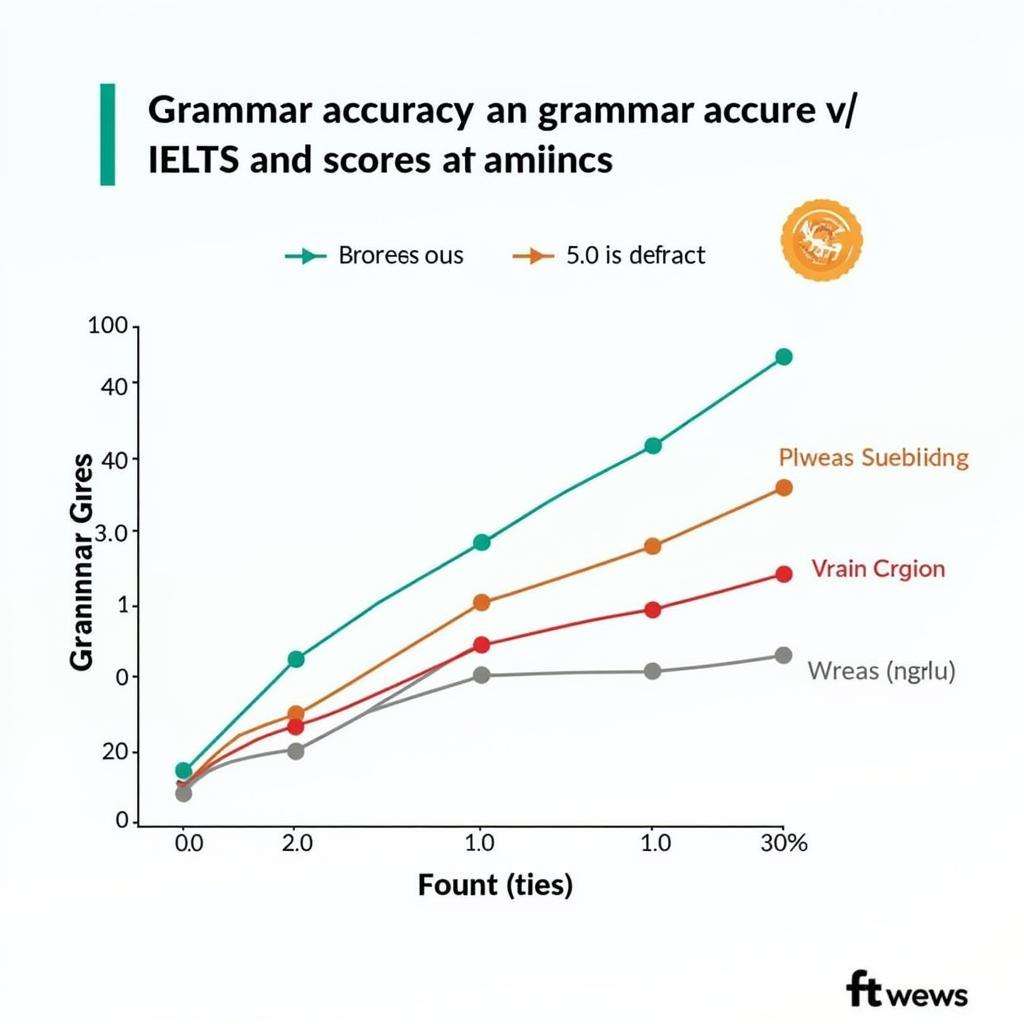Grammar accuracy plays a crucial role in achieving a high band score in IELTS. Whether you’re taking the Writing or Speaking test, mastering common grammatical structures and avoiding errors can significantly impact your performance. This comprehensive guide will help you identify and eliminate common grammar mistakes in your IELTS preparation.
Understanding the Impact of Grammar on IELTS Scores
Grammar accounts for 25% of your Writing and Speaking scores in IELTS. For those aiming to achieve Band 7 or higher, maintaining grammatical accuracy is essential. Similar to ways to avoid common IELTS grammar mistakes, understanding the core principles can help you develop better language control.

Common Grammar Mistakes to Watch Out For
Subject-Verb Agreement
One of the most frequent errors occurs in subject-verb agreement. Always ensure your verb matches the subject in number:
- Incorrect: The number of students have increased.
- Correct: The number of students has increased.
Article Usage
Many test-takers struggle with articles (a, an, the). When avoiding grammar mistakes in speaking, remember these basic rules:
- Use ‘the’ for specific references
- Use ‘a/an’ for general references
- Some nouns don’t need articles
Strategies for Error Prevention
1. Systematic Proofreading
When avoiding grammar mistakes in timed tasks, develop a systematic approach:
- Check verb tenses
- Review subject-verb agreement
- Verify article usage
- Examine prepositions
- Look for common confusables
2. Time Management
Allocate specific time for grammar checking:
- Task 1: 2-3 minutes
- Task 2: 3-4 minutes
- Speaking: Mental self-correction
“Effective grammar checking isn’t about perfection; it’s about developing a reliable system that works under time pressure,” says Dr. Sarah Thompson, IELTS examiner with 15 years of experience.
3. Self-Monitoring Techniques
When avoiding grammar mistakes in listening responses, practice these techniques:
- Record yourself speaking
- Use grammar checkers for writing
- Keep a grammar error log
- Study correct forms
Advanced Grammar Considerations
Complex Structures
To achieve higher bands, master:
- Conditional sentences
- Relative clauses
- Passive voice
- Modal verbs
- Perfect tenses
Sentence Variety
While avoiding wordiness in task 1 reports, maintain sentence variety:
- Simple sentences
- Compound sentences
- Complex sentences
- Compound-complex sentences
FAQs About Grammar in IELTS
Q: How important is perfect grammar for a Band 7?
A: While perfect grammar isn’t required, consistent accuracy with only occasional errors is necessary for Band 7.
Q: Should I use simple or complex grammar structures?
A: Use a mix of both, ensuring accuracy over complexity. Simple but correct is better than complex but incorrect.
Q: How can I improve my grammar quickly before the test?
A: Focus on identifying and correcting your most common mistakes through targeted practice and regular self-assessment.
Q: What’s the best way to check grammar during the test?
A: Develop a quick checklist focusing on common errors and allocate specific time for proofreading.
Conclusion
Avoiding grammar mistakes in IELTS requires systematic practice, awareness, and effective time management. Focus on mastering fundamental structures while gradually incorporating more complex patterns. Remember, consistency and accuracy are more important than showing off complicated grammar. Keep practicing these strategies, and you’ll see improvement in your IELTS performance.